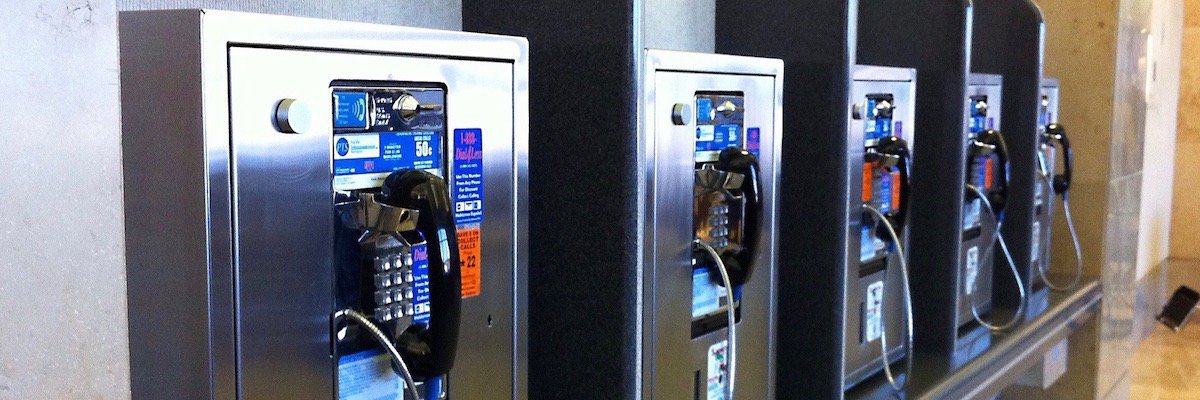Phone calls at Michigan’s Mecosta County Jail last year, current population 93, cost inmates and their families nearly $173,000, and records released by the Sheriff’s Department suggest only half of calls made were even connected, leaving inmates and family members to pay tens of thousands of dollars for calls that never happened.
“Their families have already been struggling for years. They’re taxed with court costs and fees, attorney bills and fees, and then they go into the system, and you want to provide extra food, and then, on top of it, you pretty much have to choose that you can’t afford to talk,” said Lisa Pullano, Executive Director of the Michigan-based Citizens for Prison Reform. “It’s creating huge barriers for families.”
According to the non-profit Prison Policy Initiative, the average cost of a 15-minute phone call from a Michigan jail is $11.89.
Understanding how poor a phone connection is can help a jail or prison hold its phone provider accountable and offer consumers a way to challenge overpriced or failing service. When Mecosta County switched vendors a few years ago, Captain Kevin Wood said he learned ICSolutions could provide the breakdown of completed calls. He had left the previous vendor due to a lack of transparency and trust; he was eager to have the information.
“You’ve kind of got to trust your provider who’s providing that service. If they’re not showing me those things, then maybe there’s something fishy going on,” Captain Wood said. “I have a whole bunch of different things that I do, so looking at inmate phone calls is not one of the things that I look at all the time.”
There is no guaranteed right to phone calls for inmates in the U.S. Most jails and prisons use private prison phone companies that handle the costs of equipment, installation, maintenance, and service. There is also, usually, a commission for the prison or jail. The Mecosta County Sheriff’s Department receives a 70% commission on each phone call.
ICSolutions did not respond to a request for comment by publication. A spokesperson for another prison phone service provider, Securus, told MuckRock unsuccessful calls can sometimes be explained by sending a call to voicemail, being declined or canceled for security reasons.
“There needs to be more transparency about exactly what we’re paying with our money to the privatized company, and I don’t feel that it’s clear what the charges are,” said Pullano. In addition to phones, many of these companies also offer video visitation kiosks and other electronic communications families use during visits.
“It becomes very frustrating for that person who is inside. If they’re in segregation units and this is the only contact with the outside and then they come to this visit and then they can’t hear us, that only elevates their level of emotional distress and contributes to further disconnectedness.”
Pullano said she was once able to get a refund from another prison phone company GTL, for a video call to her son in another state. She hadn’t heard of anyone else ever getting money back for service that failed and doubted that many others have felt informed enough to navigate the process.
Prison phone providers fall into a regulatory grey area. The Federal Communication Commission imposed caps on interstate calls to and from prisons in 2016 when it also limited ancillary fees and discouraged the use of commissions and revenue sharing between phone companies and facilities. However, the FCC doesn’t regulate what happens for calls that are to and from the same state. That responsibility falls to state regulatory bodies. In Michigan, the Public Utilities Commission covers telecommunications but not prison phones. The Department of Corrections does not oversee prison phone companies either.
“When it comes to this stuff, a lot of it is the bottom line dollar. What’s it going to cost us? What’s the revenue for us?” Captain Wood explained. “Sometimes, it’s whoever’s the hottest in the state at the time. It’s like buying something on the internet. ‘Well, that bicycle must be good, because everybody buys it.’”
The families on the other end of the phone line, though, understand there is much more at stake than revenue.
“Does everyone need to be punished?” asked Pullano. “Not be able to have the food on their tables, because their parent has to choose if they can have a phone call with their daddy or their mommy that’s inside? These are tough choices, and it shouldn’t have to be this way.”
Correction: An earlier version of this article erroneously stated that the FCC in 2016 eliminated commissions paid by prison phone companies to the operators of jails and prisons as part of their contracts for prison communication services. It has been corrected to state that while the FCC discourages the use of these revenue-sharing arrangements, they did not in fact prohibit or eliminate them.




